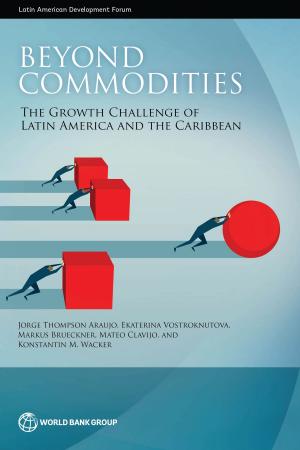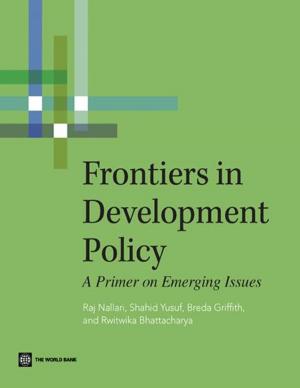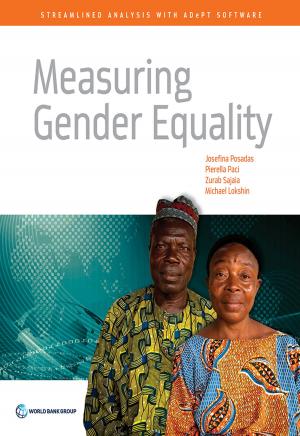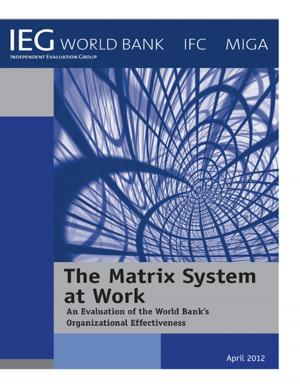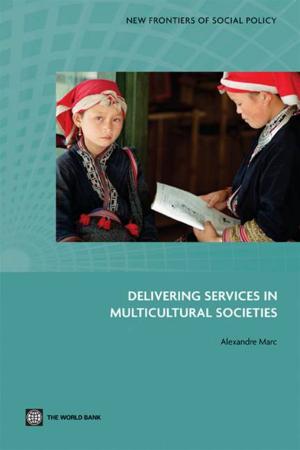Politically Exposed Persons: A Guide On Preventive Measures For The Banking Sector
Business & Finance, Economics, Economic Development| Author: | Greenberg Theodore S.; Gray Larissa; Schantz Delphine; Gardner Carolin; Latham Michael | ISBN: | 9780821382493 |
| Publisher: | World Bank | Publication: | April 19, 2010 |
| Imprint: | Language: | English |
| Author: | Greenberg Theodore S.; Gray Larissa; Schantz Delphine; Gardner Carolin; Latham Michael |
| ISBN: | 9780821382493 |
| Publisher: | World Bank |
| Publication: | April 19, 2010 |
| Imprint: | |
| Language: | English |
In recent years, the revelations of grand corruption and the scale of the plunder of state assets has led to greater scrutiny of financial relationships with politically exposed persons (PEPs) and potential money laundering risks associated with these customers. PEPs individuals who are or have been entrusted with prominent public functions, their family members, and close associates represent a greater risk because of the possibility that such individuals may abuse their position and influence to accept and extort bribes and misappropriate state assets. Implementation of an effective PEPs regime is a critical component of the prevention and detection of transfers of proceeds of crime and therefore ultimately in the process of recovering these proceeds of corruption. The United Nations Convention against Corruption (UNCAC) and the Financial Action Task Force (FATF) Forty Recommendations on Money Laundering require countries to ensure that financial institutions implement systems for identification and verification of PEP customers, enhanced due diligence procedures at account opening, and ongoing monitoring.Notwithstanding the efforts by many financial institutions and regulatory authorities to prevent corrupt PEPs from entering and using the financial system to launder the proceeds of corruption, there has been an overall failure in the effective implementation of risk based systems to detect corruption proceeds. In this context, Politically Exposed Persons A Guide on Preventive Measures for the Banking Sector is designed to help build regimes that will facilitate the identification of corrupt PEPs and their efforts to launder money through banks. The authors identify recommendations and good practices aimed at improving compliance with international standards and increasing supervisory effectiveness.
In recent years, the revelations of grand corruption and the scale of the plunder of state assets has led to greater scrutiny of financial relationships with politically exposed persons (PEPs) and potential money laundering risks associated with these customers. PEPs individuals who are or have been entrusted with prominent public functions, their family members, and close associates represent a greater risk because of the possibility that such individuals may abuse their position and influence to accept and extort bribes and misappropriate state assets. Implementation of an effective PEPs regime is a critical component of the prevention and detection of transfers of proceeds of crime and therefore ultimately in the process of recovering these proceeds of corruption. The United Nations Convention against Corruption (UNCAC) and the Financial Action Task Force (FATF) Forty Recommendations on Money Laundering require countries to ensure that financial institutions implement systems for identification and verification of PEP customers, enhanced due diligence procedures at account opening, and ongoing monitoring.Notwithstanding the efforts by many financial institutions and regulatory authorities to prevent corrupt PEPs from entering and using the financial system to launder the proceeds of corruption, there has been an overall failure in the effective implementation of risk based systems to detect corruption proceeds. In this context, Politically Exposed Persons A Guide on Preventive Measures for the Banking Sector is designed to help build regimes that will facilitate the identification of corrupt PEPs and their efforts to launder money through banks. The authors identify recommendations and good practices aimed at improving compliance with international standards and increasing supervisory effectiveness.


